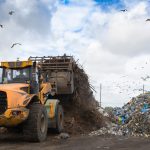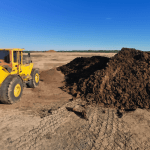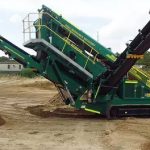Waste is an inevitable by-product of human activity, but how we manage it shapes the world we live in. From households and local businesses to large-scale industries, effective waste management has become a cornerstone of environmental sustainability. In Australia, organizations like Peel Resource Recovery are leading the way by offering innovative waste management solutions that balance efficiency, cost-effectiveness, and ecological responsibility.

contruction waste disposal
This article explores the importance of waste management, the challenges we face, and how communities, governments, and businesses can collaborate to build a cleaner, greener future.
1. Understanding Waste Management
Waste management refers to the collection, transportation, processing, recycling, and disposal of waste materials in ways that minimize environmental impact. It is more than just removing rubbish; it is about ensuring that every stage of waste handling is responsible and sustainable.
Key components include:
- Collection and Segregation – Sorting waste at its source into categories like recyclables, organic waste, hazardous materials, and general refuse.
- Transportation – Ensuring waste is safely moved to processing or disposal sites.
- Recycling and Reuse – Converting materials such as plastics, metals, and paper into new products.
- Safe Disposal – Managing residual waste through environmentally compliant landfills or incineration with energy recovery.
Without a structured approach, waste can lead to pollution, health hazards, and long-term damage to ecosystems.
2. Why Waste Management Matters
The growing population and urbanization in Australia highlight the urgent need for waste management strategies. Proper waste management delivers several benefits:
- Environmental Protection – Prevents soil, water, and air pollution caused by untreated waste.
- Public Health – Reduces the spread of diseases by ensuring waste is handled hygienically.
- Resource Conservation – Recycling saves raw materials, reduces energy consumption, and lowers carbon emissions.
- Economic Value – The recycling sector creates jobs and reduces costs for businesses by turning waste into valuable resources.
- Compliance with Regulations – Waste management aligns with government policies and environmental laws.
According to the Australian Government Department of Climate Change, Energy, the Environment and Water, Australia generates millions of tonnes of waste annually, making waste reduction and recycling essential national priorities.
3. Challenges in Waste Management
While Australia has made significant progress, there are ongoing challenges:
- Increasing Volumes of Waste – With rising consumerism, the amount of plastic packaging, e-waste, and industrial by-products continues to grow.
- Hazardous Waste Handling – Materials like batteries, chemicals, and medical waste require special care and disposal methods.
- Recycling Contamination – Improper sorting of recyclables reduces efficiency and increases costs.
- Landfill Dependence – Despite efforts to reduce landfill use, a large percentage of waste still ends up buried.
- Public Awareness – Many individuals and businesses lack knowledge about correct recycling and disposal practices.
Solving these issues requires collaboration across communities, industries, and governments.
4. Peel Resource Recovery: Driving Sustainable Solutions
Peel Resource Recovery is at the forefront of waste management in Australia. The company focuses on providing eco-friendly and cost-effective solutions for businesses and communities.
Some of their initiatives include:
- Recycling Programs – Encouraging industries to adopt recycling systems that minimize waste sent to landfills.
- Construction and Demolition Waste Processing – Converting rubble, bricks, and concrete into reusable materials like road base and aggregates.
- Green Waste Recovery – Transforming organic waste into mulch and compost for agricultural use.
- Education and Awareness – Working with clients to promote best practices in waste reduction.
By offering tailored solutions, Peel Resource Recovery supports both sustainability goals and compliance with Australian waste management regulations.
5. The Role of Businesses in Waste Management
Businesses generate a large portion of Australia’s waste. From construction companies to retail stores, every industry contributes. However, this also means they have the greatest opportunity to make a difference.
Steps businesses can take:
- Adopt zero-waste policies.
- Invest in recycling infrastructure.
- Partner with professional waste management companies.
- Educate employees about waste separation.
- Embrace circular economy principles, where materials are continuously reused instead of discarded.
By doing so, companies not only reduce costs but also enhance their reputation as socially responsible organizations.
6. Waste Management and Community Engagement
Waste management cannot succeed without active community involvement. Local councils and waste companies collaborate to ensure households are aware of proper disposal practices. Simple actions, such as separating recyclables from general rubbish or composting organic matter, can create significant environmental benefits.
Community-driven initiatives, such as neighborhood clean-up days or recycling drop-off points, help raise awareness and encourage participation. Education is key—when people understand the long-term benefits, they are more likely to take action.
7. The Future of Waste Management in Australia
The waste management industry is evolving rapidly, driven by innovation and technology. Some future trends include:
- Smart Bins and IoT Solutions – Monitoring waste levels to optimize collection routes and reduce costs.
- Advanced Recycling Techniques – Using chemical processes to recycle plastics into new raw materials.
- Energy from Waste (EfW) – Converting non-recyclable waste into renewable energy sources.
- Circular Economy Integration – Reducing dependency on raw materials by maximizing reuse and recycling.
- Government Incentives – Expanding policies to support businesses and individuals who adopt eco-friendly waste solutions.
With companies like Peel Resource Recovery leading the charge, Australia is on the right path to achieving a sustainable waste management system.
Conclusion
Waste management is no longer optional—it is a necessity for protecting the environment, conserving resources, and ensuring the health and well-being of communities. By combining innovative solutions, responsible business practices, and community engagement, Australia can build a cleaner and more sustainable future.
Peel Resource Recovery continues to play a vital role in this journey, offering waste management solutions that support both ecological and economic goals. With increasing awareness and collaboration, the vision of a waste-free Australia is not just possible—it is within reach.






